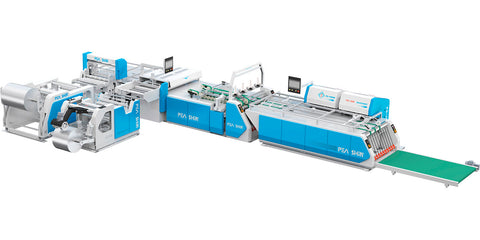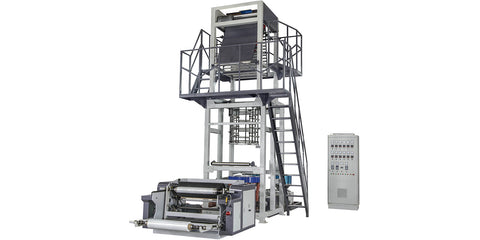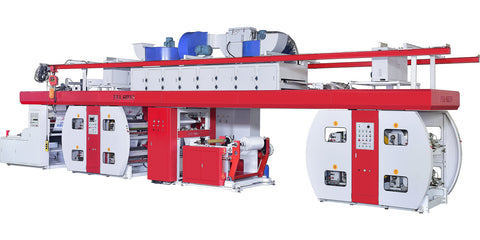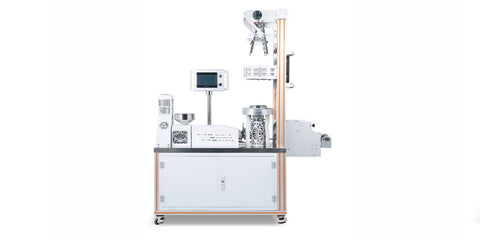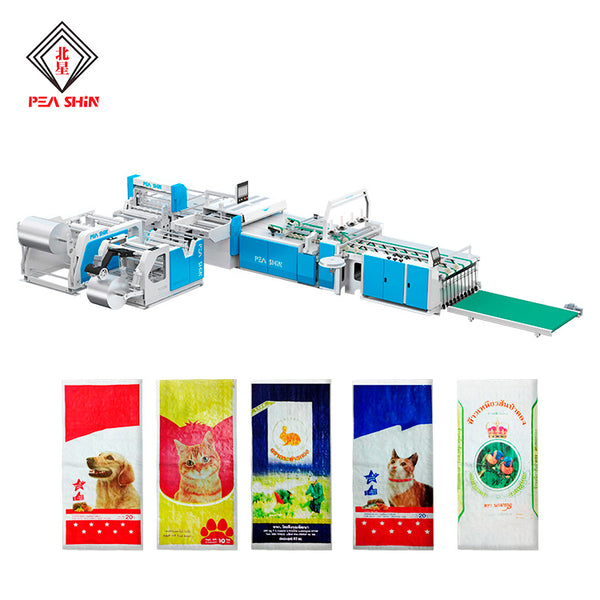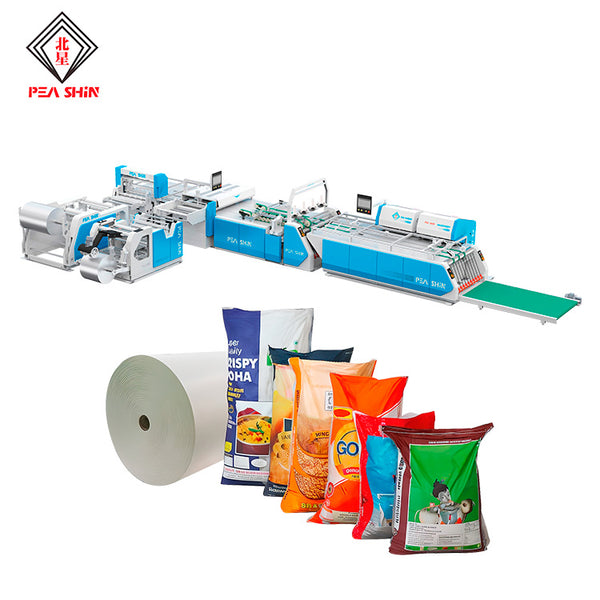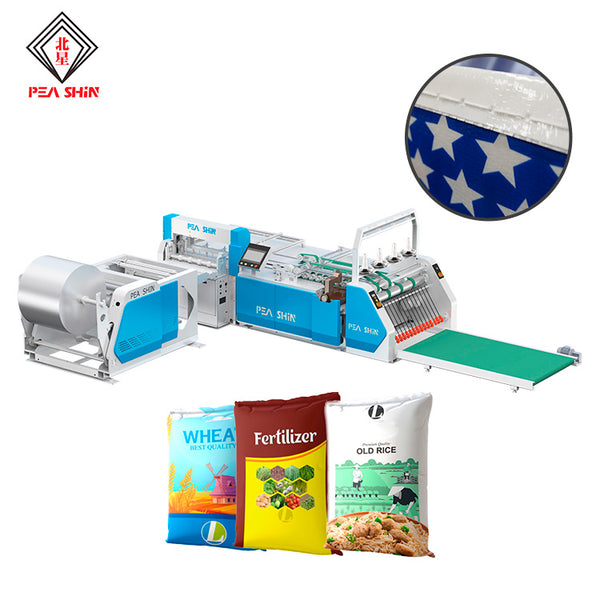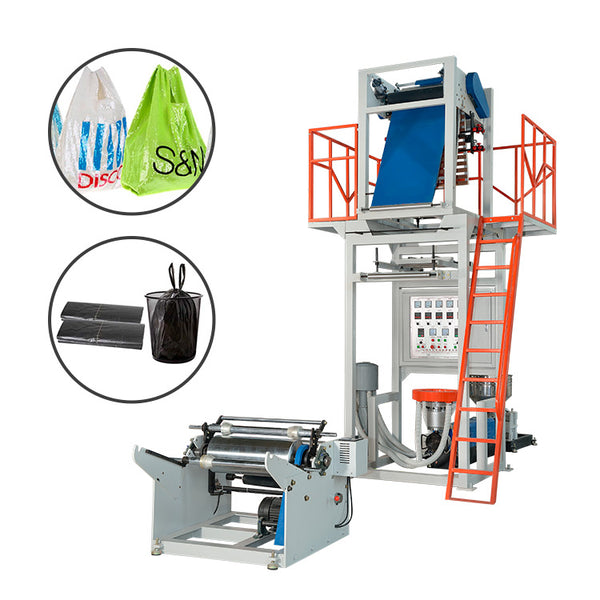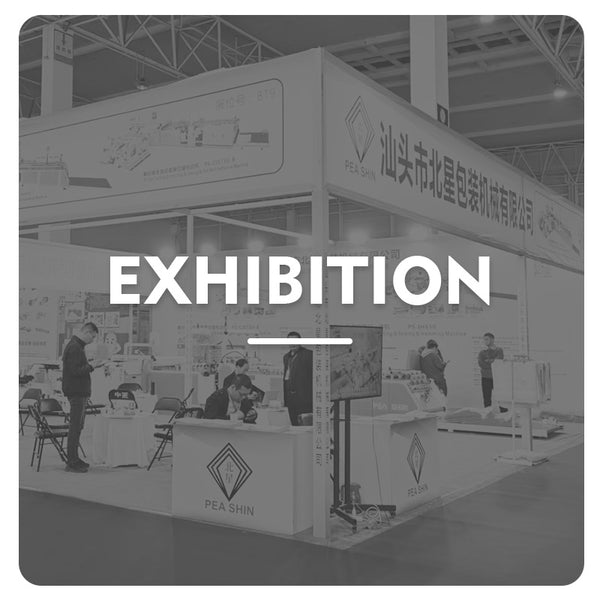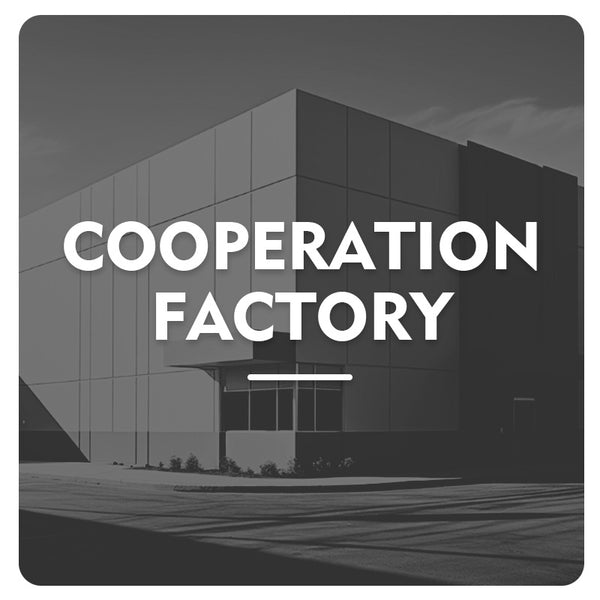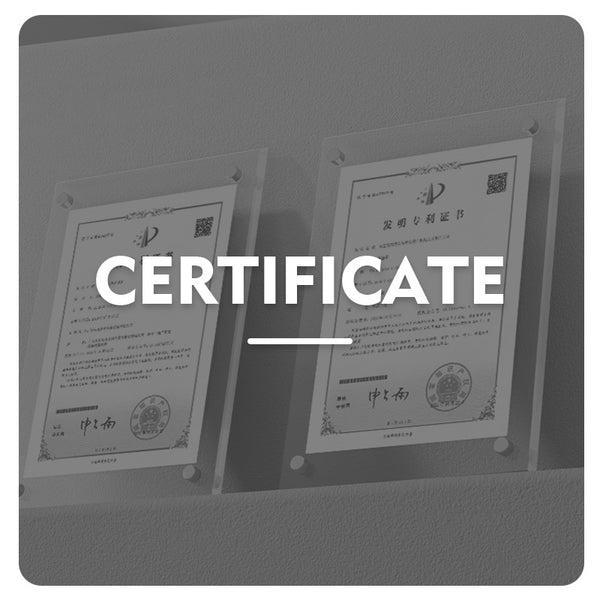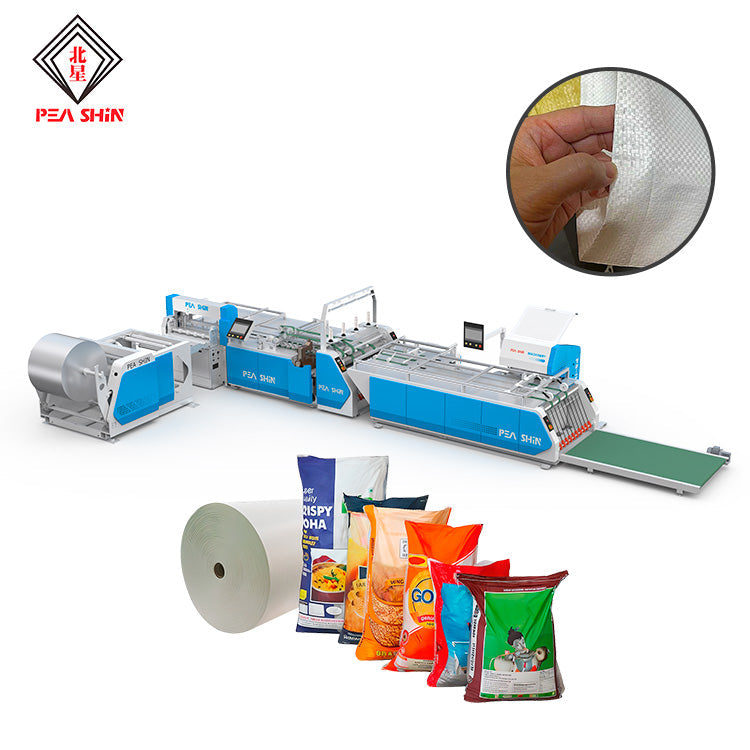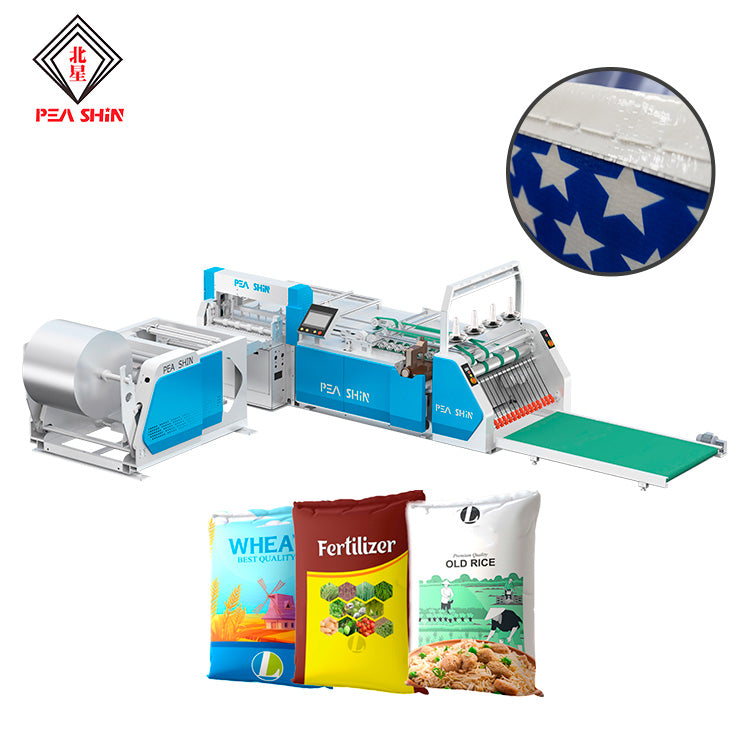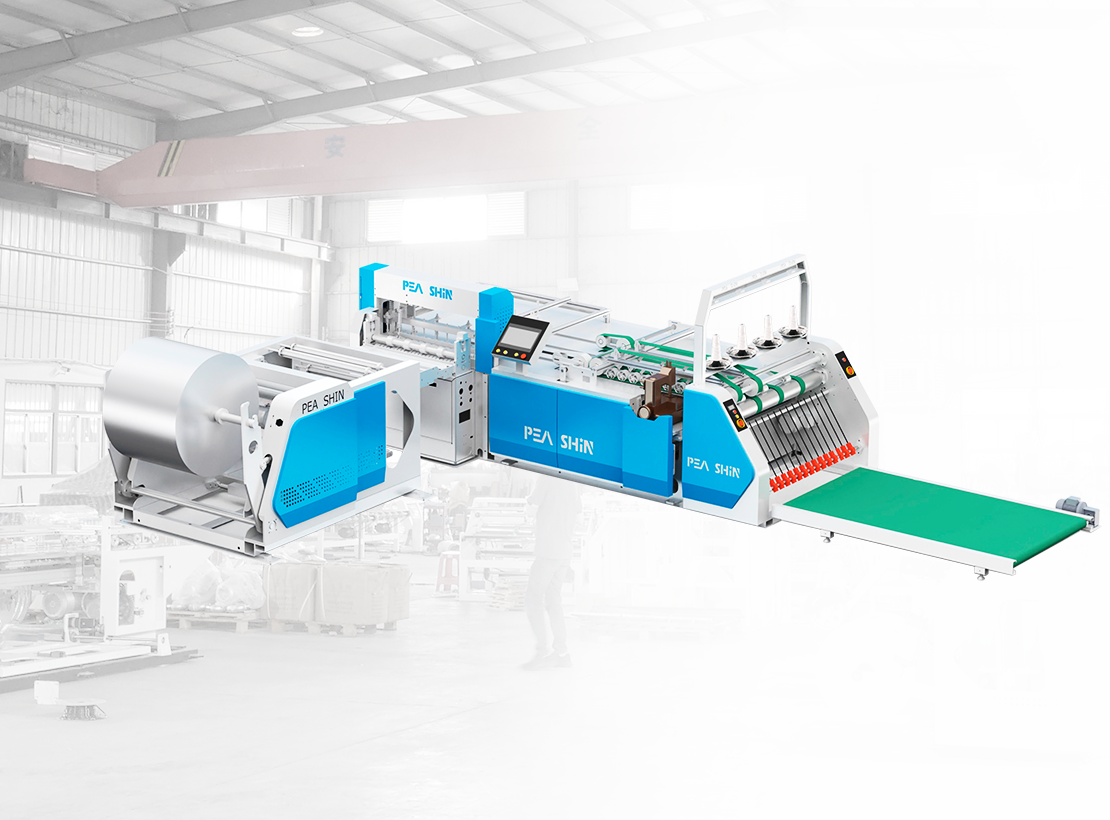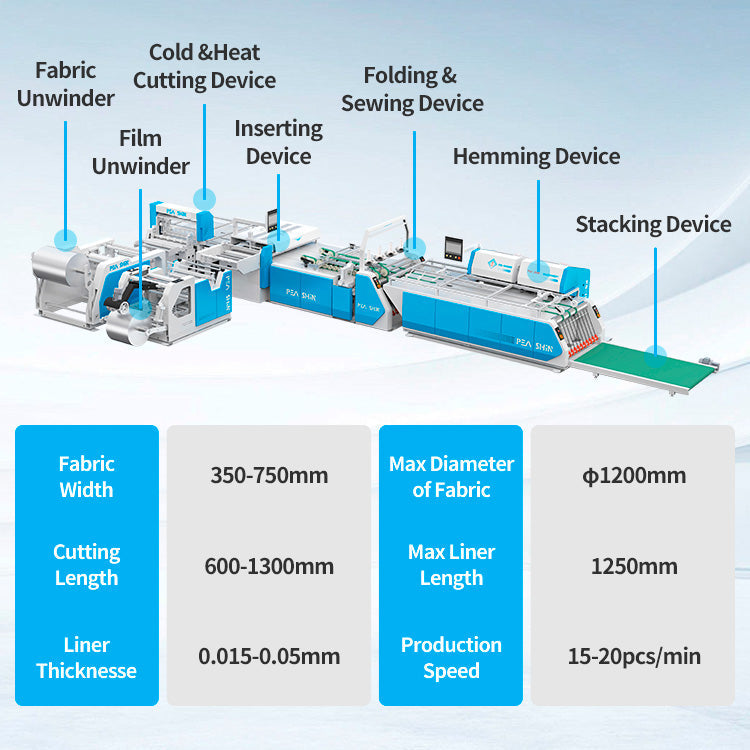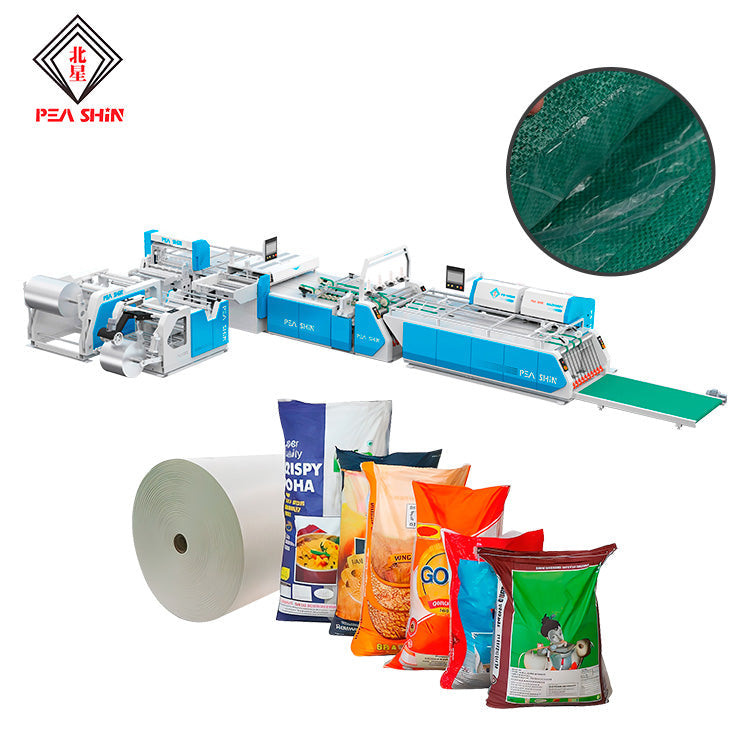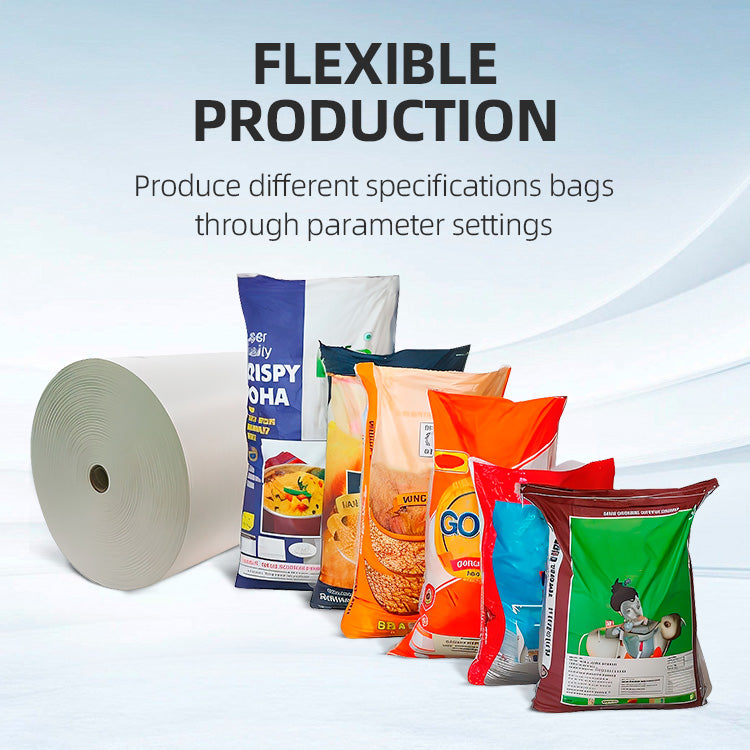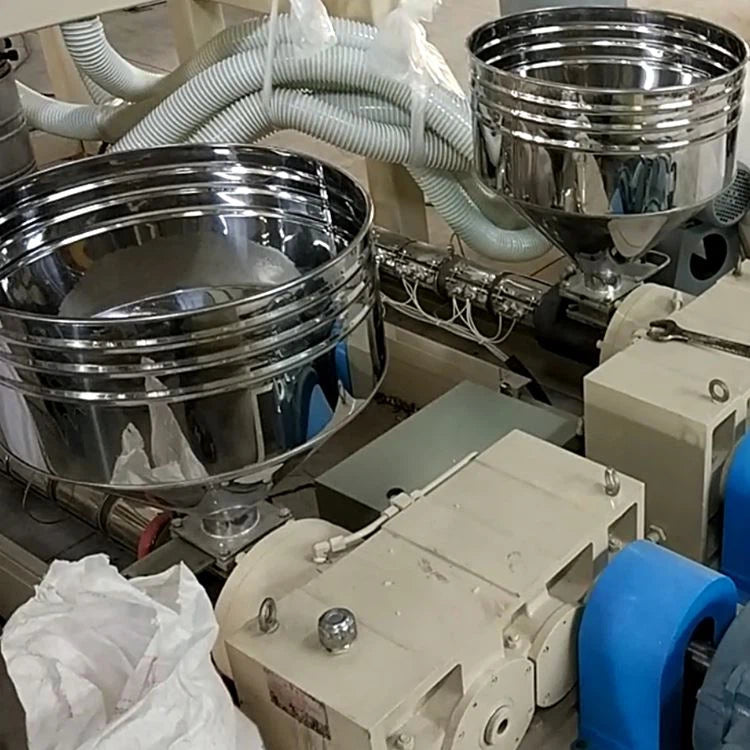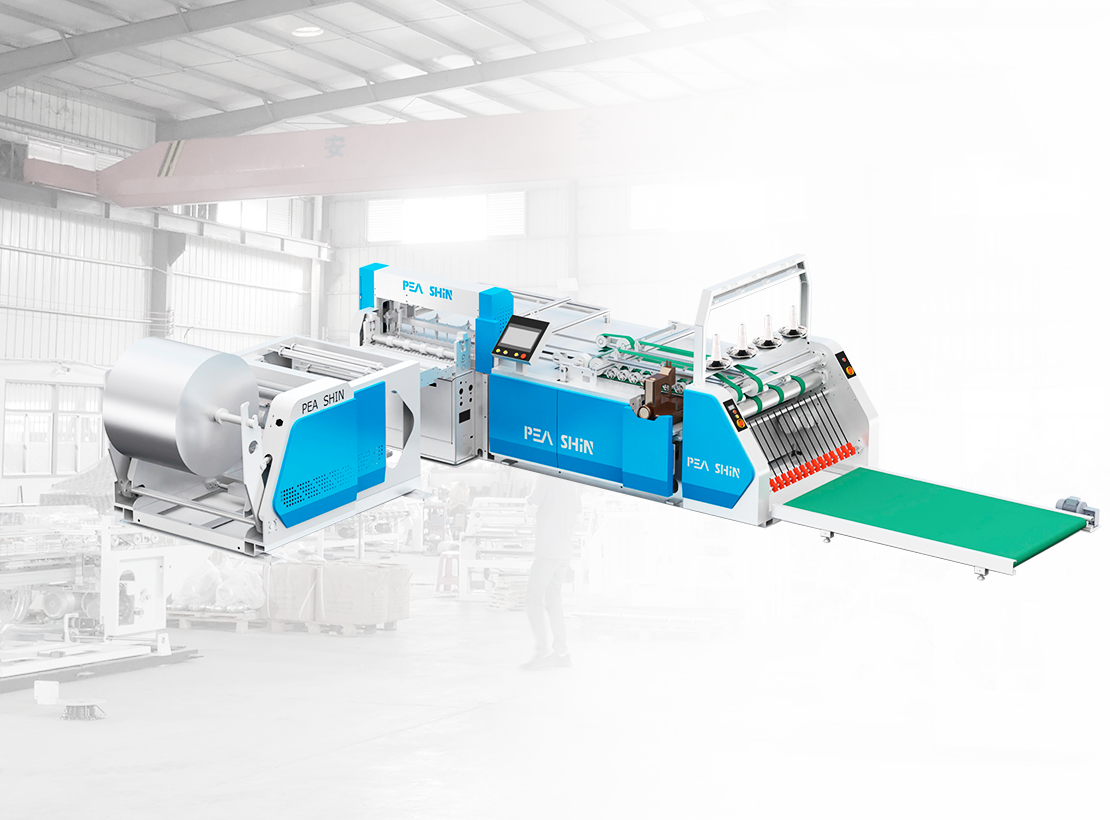Technological Innovations Transforming Bag Making Machines in 2025
The bag making machine industry is witnessing a wave of technological innovations that are reshaping production efficiency, quality, and flexibility. Manufacturers are increasingly investing in machines that integrate servo-driven automation, digital controls, and energy-saving technologies, allowing them to meet evolving market demands for woven PP and laminated bags.
Servo motor integration is one of the most significant advancements. Unlike traditional mechanical drives, servo motors provide precise control over cutting, sealing, and stacking operations. This technology ensures consistent bag dimensions, accurate sealing, and reduced material waste. Factories that adopt servo systems report higher production speeds, lower labor dependency, and improved reliability, particularly in high-volume industrial applications.
PLC and touchscreen interfaces are becoming standard in modern bag making machines. These systems allow operators to easily adjust parameters, monitor performance, and manage multiple production lines from a single control panel. Digital controls also facilitate automated batch changeovers, enabling factories to produce different bag sizes or materials without stopping the line, significantly increasing flexibility and productivity.
Energy efficiency is another area where technology is transforming operations. Modern machines incorporate optimized motors, intelligent idle modes, and minimal friction components, reducing electricity consumption and operational costs. As energy prices rise globally and sustainability regulations tighten, energy-efficient designs are increasingly important for both small and large-scale manufacturers.
Predictive maintenance and smart monitoring are also revolutionizing the industry. Sensors now track real-time data such as motor load, sealing temperature, and material tension. This data enables early detection of potential problems before they escalate into costly downtime. Predictive maintenance improves machine reliability, prolongs component life, and ensures consistent production quality.
Flexibility in bag formats is enhanced through technological innovation. Modern lines can produce flat bags, T-shirt bags, valve bags, and block-bottom bags, often with integrated lamination, printing, or perforation systems. Machines with modular designs allow manufacturers to customize production setups based on customer demand, which is essential in industries like agriculture, food, chemicals, and retail packaging.
Automation in stacking and handling has also improved operational efficiency. Modern bag making machines include automatic stacking, palletizing, and film feeding systems that reduce manual intervention. This not only lowers labor costs but also reduces the risk of production errors, damaged bags, and safety incidents in the factory.
The integration of IoT and Industry 4.0 technologies is gradually becoming a game-changer. Connected machines can be remotely monitored, providing operators and managers with insights into production efficiency, energy consumption, and maintenance requirements. Data-driven decision-making enhances operational planning, reduces waste, and maximizes throughput across multiple lines or factory sites.
Global competition drives further technological adoption. Manufacturers in Asia, Europe, and North America are upgrading machinery to maintain competitive advantage. Suppliers that offer innovative, reliable, and energy-efficient machines are capturing market share, particularly among mid-sized factories that are transitioning from older mechanical systems to modern automated solutions.
Finally, technology is also addressing sustainability challenges. Machines capable of handling recycled PP, biodegradable films, or laminated structures support environmental compliance and customer demand for eco-friendly packaging. Reducing material waste, optimizing energy use, and enabling recyclable or sustainable bag production are now integral to machine design.
In conclusion, technological innovations in bag making machines are reshaping the global packaging industry. From servo automation and digital controls to energy efficiency, predictive maintenance, and flexible configurations, manufacturers are adopting advanced solutions to improve quality, productivity, and sustainability. The factories that embrace these innovations are poised to achieve higher efficiency, lower costs, and a stronger competitive position in 2025 and beyond.
